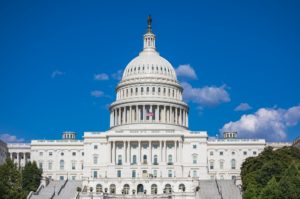Senate Passes Paycheck Protection Flexibility Act of 2020

All information is based on our current understanding as of the date that it is posted. Please keep in mind this information is changing rapidly – it can and likely will change. Some information becomes outdated the same date it posted. Although we will monitor and update this page as new information becomes available, please do not rely solely on this page. We encourage you to contact your Lutz, Selig & Zeronda advisor for the latest information.
On Wednesday night, the Senate voted to approve the Paycheck Protection Flexibility Act of 2020. This Act was previously passed by the House on May 28, 2020. This new legislation makes key adjustments to the Paycheck Protection Program (PPP) loan forgiveness requirements.
Here is a brief overview of the key provisions contained in the Act:
- The covered period (period to spend the PPP funds) was extended from 8 weeks to the earlier of 24 weeks or December 31, 2020. Borrowers who already have PPP loans will have the option to use the original 8-week covered period.
- To receive loan forgiveness, an eligible recipient must use at least 60% of the covered loan amount for payroll costs and may use up to 40% on non-payroll costs. Qualified non-payroll costs remain the same (mortgage interest, rent and utilities).
- The minimum term period for NEW PPP loans is extended from two years to five years. In addition, this provision authorizes lenders and borrowers to “mutually agree” to retroactively modify existing loans.
- Extends deferral on PPP loan payments from 6 months to 10 months.
- Restores eligibility for employer payroll tax deferrals.
- Exemption based on employee availability – During the period beginning February 15, 2020 and ending December 31, 2020, the amount of loan forgiveness is determined without regard to a reduction in full-time equivalent employees or wages if:
- The eligible recipient, in good faith is able to document
- An inability to rehire individuals who were employees of the recipient on February 15, 2020; and
- An inability to hire similarly qualified employees for unfilled positions on or before December 31, 2020; or
- Is able to document an inability to return to the same level of business activity due to compliance with requirements established or guidance issued by the Secretary of Health and Human Services, the Director of the Centers for Disease Control and Prevention, or OSHA during the period beginning March 1, 2020 and ending December 31, 2020, related to the maintenance of standards for sanitation, social distancing, or any other worker or customer safety requirements related to COVID-19.
- The eligible recipient, in good faith is able to document
The Paycheck Protection Flexibility Act now heads to the President for signature. If you have any questions regarding the Act, please reach out to your Lutz, Selig & Zeronda, L.L.P advisor.
